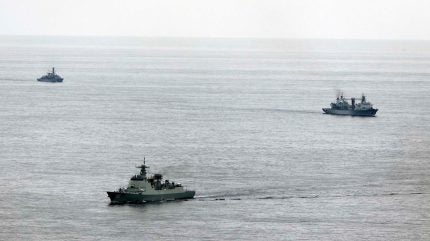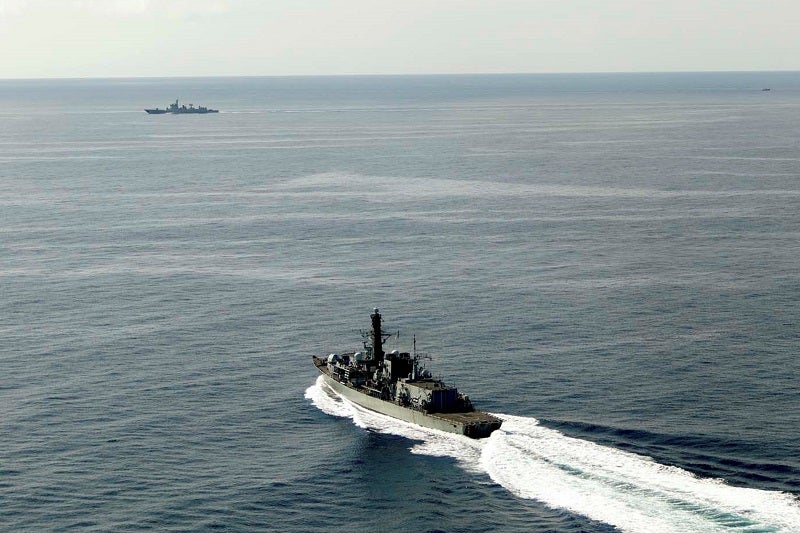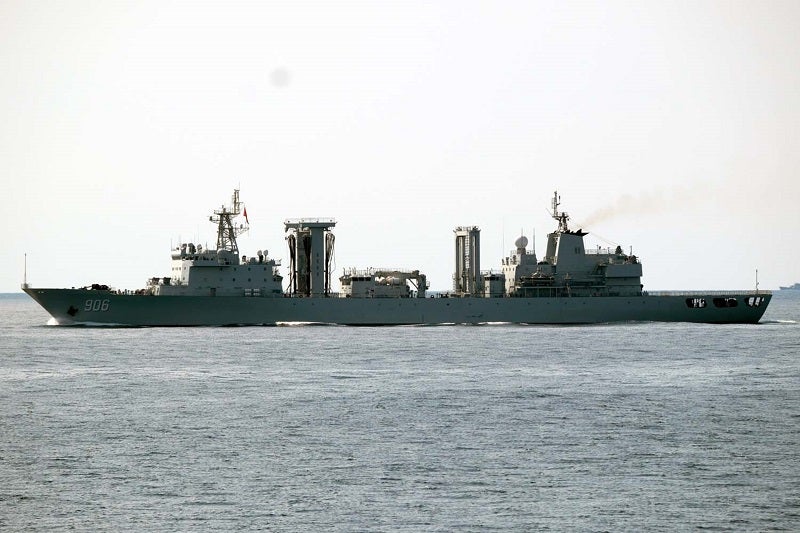
An update from the UK Royal Navy confirmed that a Type-23 frigate, HMS Richmond, monitored two Chinese People’s Liberation Army Navy (PLAN) warships passing lawfully through UK waters returning from St Petersburg, Russia.
According to a Royal Navy statement made on 10 August 2024, the two vessels traversed the North Sea and the English Channel on a return journey from participating in Russian Navy Day celebrations, which took place on 28 July.
Working alongside Nato allies, the British warship was on hand to surveil the two vessels – the Jiaozuo, a 7,500-tonne destroyer, and Honghu, a 23,400-tonne supply ship – as they made their return voyage under routine right of passage.
The UK Minister for the Armed Forces, Luke Pollard, confirmed that the “these escorts are a clear demonstration of how the Royal Navy continues to protect the sovereignty of UK waters.”
A lawful passage
Although the presence of PLAN ships in the English Channel is not a common occurrence, it is not the first time the Royal Navy has monitored Chinese ships heading to or from St Petersburg for its annual naval gathering.
The Royal navy called up HMS St Albans and Westminster to monitor the Chinese destroyer Xian as it sailed to and from the same event back in 2019.
The right of ‘innocent passage’ – a term used in the United Nations Convention on the Law of the Sea – of foreign ships through territorial waters of a coastal nation remains one of the oldest rules of international law.
Passage is said to be innocent “so long as it is not prejudicial to the peace, good order or security of the coastal State.”
PLAN conduct in the Indo Pacific
Speaking with Naval Technology, a research fellow at the Council of Geostrategy, William Freer, pointed out some key points when considering the British handling of the escort:
“I think the first take away is the contrast between how we conduct escorts during innocent passage near the UK compared to how the PLAN conducts escorts in the South and East China Seas. We often see irresponsible actions from the PLA, such as last year using sonar in an unprofessional manner on some Australian sailors.
“This uneventful passage is a reminder [of] how a professional and responsible navy conducts these missions, reminding the other warships that you are present and they are under observation, but without doing so in an aggressive manner.”

In contrast, China’s behaviour in the maritime domain, specifically in the Indo Pacific, has prompted cause for concern.
Among other nations, the Philippines face up to Chinese aggression at sea. GlobalData intelligence indicates that the archipelago’s naval modernisation is prompted to counter China’s “assertiveness” in the South China Sea.
In May, Manila announced that it will establish a new naval facility on the island of Pag-asa, Palawan in the West Philippine Sea. More recently, the government launched a new corvette, BRP Miguel Malvar, on 18 June. South Korea’s HD Hyundai Heavy Industries manufactured the vessel in Ulsan.
Chinese military build-up
“I think the other takeaway is the reminder on how extensive the build up of the PLAN has been,” added Freer. He noted that this is exemplified by the vessels involved in the latest passage:
The Jiaozuo was commissioned in 2022, HMS Richmond in 1995. In fact, since 2013 when the latest Royal Navy escort (cruisers, destroyers, and frigates) was commissioned, China commissioned 58 escorts.
“This is a concerning naval build up which we are yet to really react to. Connected to this build up is the growing evidence that the PLAN will not remain in waters close to China, they will increasingly become a globe-spanning navy and the need to escort PLAN vessels in British waters will likely grow over time.”




